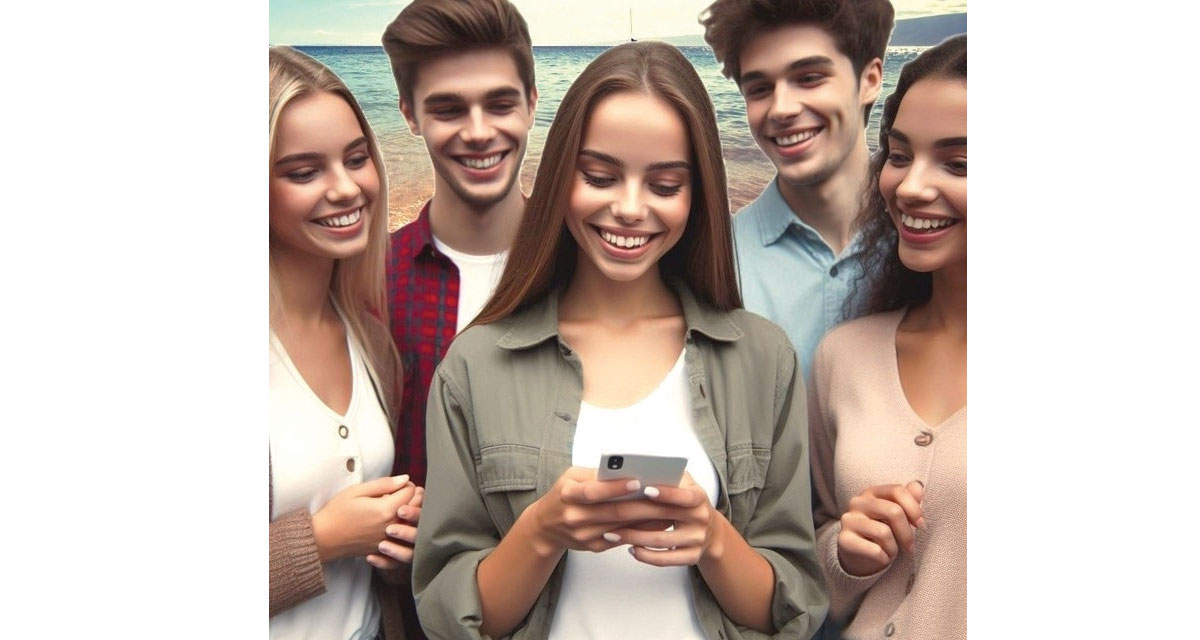In the 2024 film “IF” from Writer and Director John Krasinski (“The Office”), starring himself, and a whole cast of notables including Ryan Reynolds, Emily Blunt, Steve Carell, Awkwafina, Matt Damon, Vince Vaughn and Cailey Fleming, amongst others, a young girl “discovers she can see everyone’s imaginary friends (a.k.a. IFs) and proceeds to embark on a magical adventure to reconnect forgotten IFs with their kids.” (IMDb)
Though the movie is fiction, the idea of seeing someone else’s IF is a reality today. Only this IF is created by AI (Artificial Intelligence). In an article entitled, “My A.I. Buddies” by Kevin Roose in the New York Times (May 9, 2024), he describes “artificial intelligence companions.” That’s right, your personal friend and companion brought to you by none other than AI itself. And, you thought it was only good for helping write presentations, emails and create customized pictures. There are apps available (partially free and partially subscription-based), that allow you to create a personalized “buddy.”
The implications of this – much like everything else with AI – are endless. Some apps mentioned include Nomi, Kindroid and Replika. Now, before you get too excited, they won’t replace a real friend, nor are they sentient, but they do have some very practical uses and benefits. With a user experience similar to ChatGPT (novice user friendly), the users can create these custom companions within the virtual environment. Once created, you can talk and text with them very similarly to how you would anyone else. You may also create multiple friends as well, and communicate with them in combination (groups).
Now, I admit, this all sounds a little strange. Kinda like the digital version of talking to yourself. However, it’s much more than that. The more you communicate, the more it learns about you, your likes, dislikes, preferences, job, hobbies, special interests and more. By learning these things, it’s able to interact with a human-like response. I admit, I started seeing scenes of HAL from “2001 – A Space Odyssey” in my head when I learned this. When you think about it, we already have algorithms directing our newsfeeds, TikTok and other social media toward those things we’re most interested in. This simply takes that logic and puts it into a more user-oriented, conversational aspect to communicating information, not simply the latest breaking news, sports and trends, but also, a more casual approach which includes back and forth, that’s more endearing.
Initially, I’m sure it feels a bit odd to interact with a virtual friend. Yet, experience has shown it doesn’t take long for users to feel comfortable about new technologies and innovations once they’ve become accustomed to them or they become ubiquitous. Imagine, for example, you have a job interview and decide to run some response ideas by your artificial friend to see if they sound good. Or, you’re trying to decide what to have for dinner that evening. Perhaps you’re not feeling well that day, and you need to get some things off your chest. This is merely the tip of the iceberg of things that can be talked about and shared with this virtual buddy.
I’m always a bit skeptical and overly cautious until I feel I can trust the technology; that would apply in this case, as well. However, I do think it has the potential to be a good virtual personal assistant, a source for inspiration and advice, and perhaps even a pick-me-up when needed. It might even be entertaining and a good source of comfort in those situations when you’re alone or by yourself in a crowded subway or airport terminal, among other places. It could also be used for safety and security if it learns to contact authorities and literal friends and family in an emergency. Given that we have Google Nest and Alexa already, we’re used to asking questions to our digital devices and hearing their responses. This seems like a natural progression and takes it to the next level, making the interaction more personal.
I think, in the long run, it has upside potential and could be a valuable tool to aid those struggling with depression and social isolation issues. Eventually – with safeguards – it could help older children adapt and develop their socialization skills further without the risks, awkwardness or anxiety they typically face in real-world situations. It’s impossible to know all the applications at this time, suffice it to say, they will be varied and possibly quite beneficial.
Picture yourself sitting on the sand this summer, having a good long chat with your virtual buddy or buddies and entertaining yourself alone on the crowded beach, without actually feeling that way. No one would know the difference these days. Just be careful not to let it replace the real thing.
Musical Selection: “Summerland” by Half-Alive (Official Video)
To comment and see more, visit theviewfrommysection.com.



















